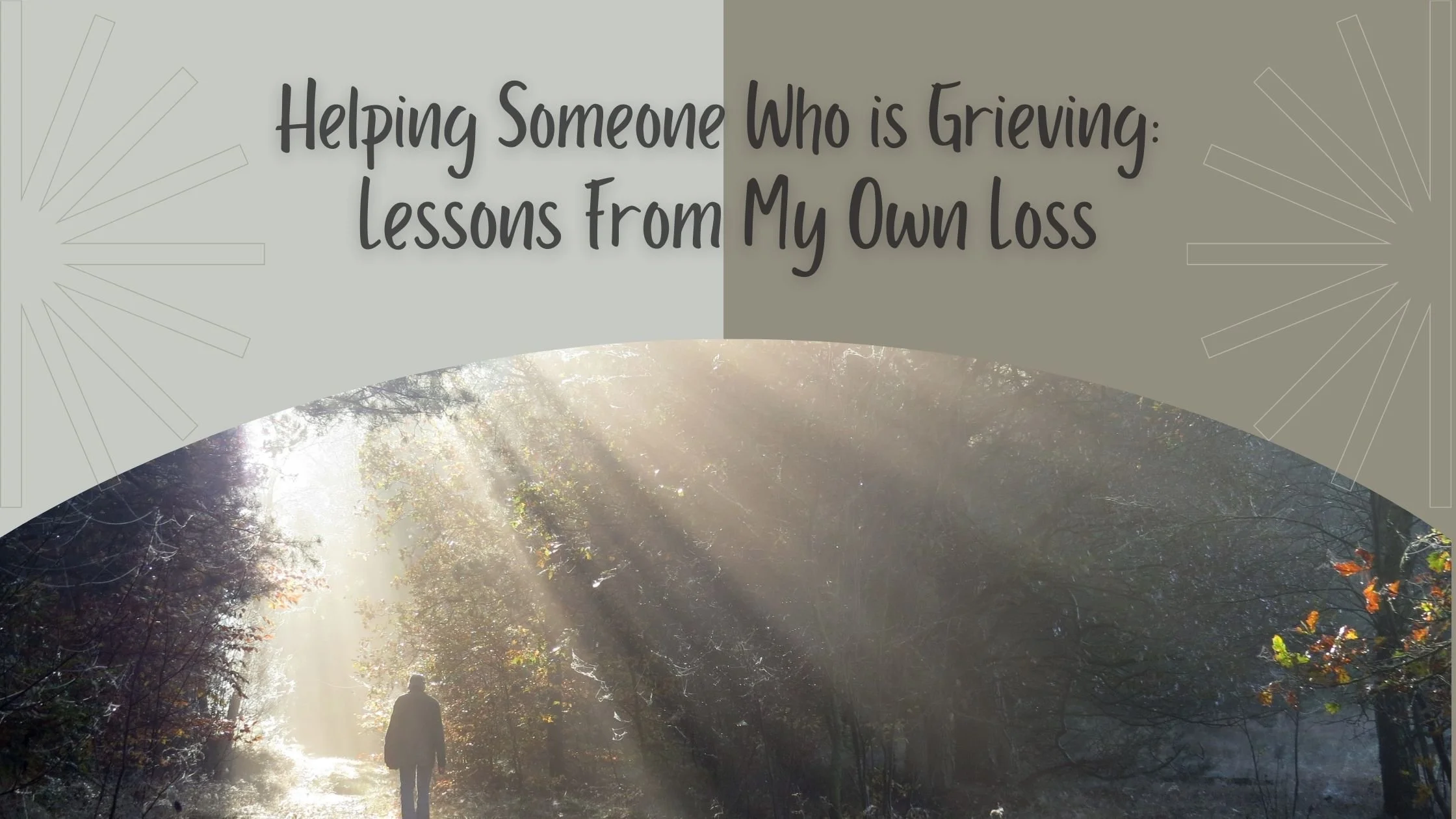Helping Someone Who is Grieving: Lessons From My Own Loss
I have always struggled with knowing what to say or do for someone who is grieving. Saying, “I am so sorry for your loss” has often felt inadequate, like it barely scratches the surface of what I want to express. Yet, I have never been able to find the words to say anything more.
When I lost my son, people reached out to us, many of whom were only acquaintances. But we also had close friends who didn’t reach out at all. Some waited weeks, even months, before we heard from them. I tried to make sense of this. Some people simply seemed overwhelmed by the intensity of loss, while others were dealing with struggles in their own lives that left them unable to reach out. And some, I believe, were afraid—terrified by the reality of losing a child and unsure of what to say. There are others I still can’t understand to this day.
Losing a child is the worst thing I could have imagined. When it happened, it felt like a part of me died too. The moment I found out we lost our son, I physically collapsed. Every part of me hurt. I was nauseous, disoriented, and lost in a blur of grief. Friends and family reached out, often repeating, “I’m so sorry.” I remember feeling confused, struggling to process the enormity of the moment.
We were in Salt Lake City, Utah, visiting my dad for Thanksgiving. My daughter and her family, along with my youngest son, had also come to spend the holiday. My son Rodney and his family had stayed in Alaska. Two days into our trip, I received the news that Rodney had passed. My grandson, who was only three, witnessed my heartbreak and kept saying, “Chey is coming,” as if my granddaughter’s presence might somehow soothe me. His pure-hearted love touched me deeply.
Friends and family in the area came immediately. My son’s best friend, who had been a part of his life since childhood, simply hugged me, saying he loved me and Rodney. His presence alone was profoundly comforting. Other loved ones drove hours just to sit by my side, silently letting me process while offering love and support. They didn’t say much, just, “I love you.” But they showed up, and that was everything.
Things That Helped Me During My Grief:
Expressions of Love and Gratitude – Simple words of love for Rodney and our family, reminders that his life had touched so many, and messages from people who were grateful for him. It didn’t have to be grand—just heartfelt.
Calls, Texts, and Notes – Regular communication, even if it was just to say, “I’m thinking of you,” meant the world. Knowing that people were there when I needed them brought comfort.
Honest Acknowledgment of the Pain – Some of the most meaningful words were from people who said, “This is terrible, and I’m so sorry,” or even admitted, “I don’t know what to say.” That raw honesty felt genuine and gave me space to feel my emotions without expectations.
Gifts That Helped Me Remember Rodney – Thoughtful gestures, like keepsakes or reminders of my son, made me feel that others valued his memory too. It made me feel seen in my grief.
Sharing Memories and Laughter – My granddaughter would sometimes call in tears, and all she wanted was a funny story about her dad. Those shared memories, the laughter amidst the tears, were profoundly healing.
Support for My Whole Family – Grieving together as a family meant so much to me. I was grateful for friends who showed up for my husband, our children, and grandchildren, especially when I couldn’t be there for them myself.
Ultimately, you don’t need to have the right words or try to fix the situation—because you can’t. Just be there in any way you can. Acknowledge what’s happening, be honest, and show up with love. Grief doesn’t need grand gestures, just raw compassion. It’s these acts, no matter how small, that can make all the difference.

